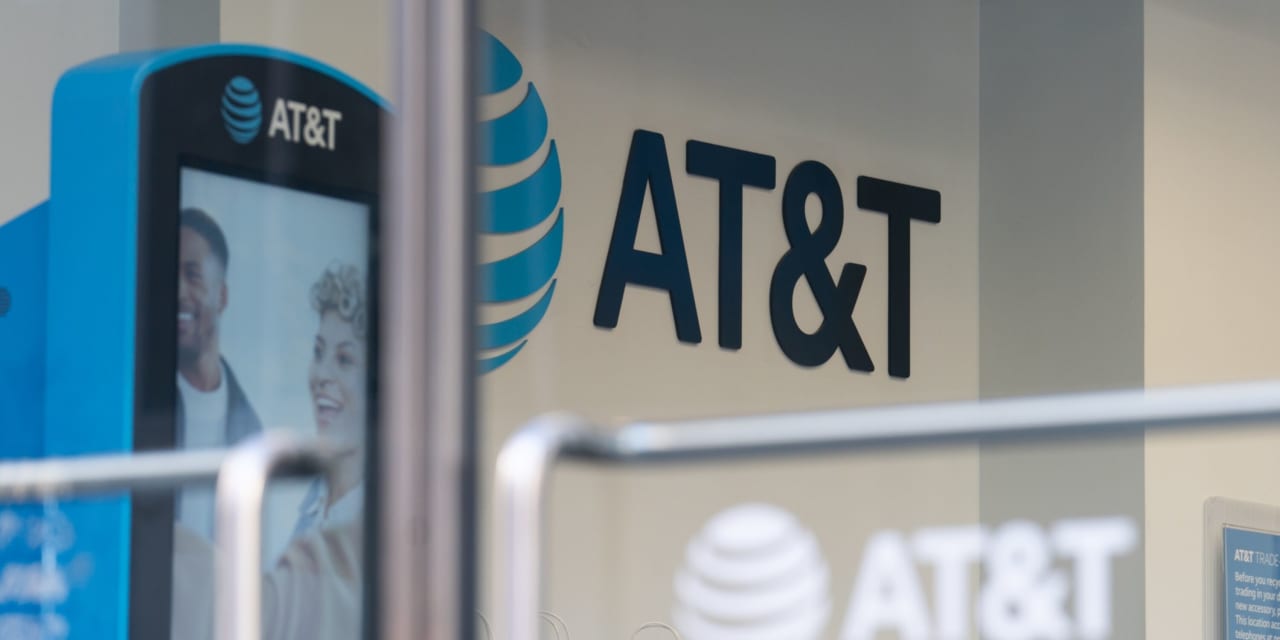The latest moves in telecom stocks illustrate a point anyone trying to keep a New Year’s resolution knows well: Truly breaking out of a rut can be difficult.
As the year began,
Verizon
Communications looked like it was going to pull it off. The shares gained almost 10% in January after a pair of bullish analyst upgrades and better-than-expected fourth-quarter results.
AT&T
lagged behind at first because its earnings failed to impress, but its stock found a bit of momentum as well thanks to its own analyst endorsements.
All that seems to have been a head fake. It is proving difficult to escape the various factors that have weighed on the companies in recent years, with trouble spots ranging from the decline of the legacy landline business to potential litigation costs. Both stocks have sold off over the past five years even as the
S&P 500
has rallied.
Both stocks are down over the past week, with losses heavier than the S&P 500, even as money pours into investments in communications services.
According to BofA Securities, the communication services sector, tracked by the
Communication Services Select Sector SPDR Fund,
saw a second week of record-breaking net investment inflows last week. Investors have been pouring money into the stocks for 15 straight weeks, giving it the longest buying streak any of the 11 sectors, partly because gains in
Alphabet
and
Meta Platforms
have left it with a year-to-date gain of almost 9%.
AT&T, meanwhile, is near the break-even line. Verizon has risen about 5%, but some analysts are growing less optimistic about its prospects.
“We would avoid Verizon and AT&T, where meaningful moves off lows will not be supported by longer-term fundamentals,” Adam Parker, founder of Trivariate Research, wrote in a research note this week.
Charter Communications,
Warner Bros. Discovery, and
Paramount Global
likely won’t see a near-term turnaround either, he said.
Recent announcements have failed to move the needle much for either stock. While Verizon held an analyst meeting last week, there were “no major announcements” from the event, as Oppenheimer analyst Timothy Horan noted. “The company mostly recapped operational highlights from 2023 and major new initiatives,” he said.
AT&T, meanwhile, said early Tuesday that it would be working with the public-safety broadband network FirstNet over the next decade to continue expanding and improving the latter’s coverage.
Because FirstNet is a government agency, it couldn’t commit the entirety of the project to one vendor. But as NewStreet Research analyst Philip Burnett noted, “it was always likely AT&T would win the next leg of funding from FirstNet, as the agency would otherwise have to select another carrier and create a new FirstNet network from the ground up.”
In other words, the announcement wasn’t much of a surprise.
On the plus side, the stocks’ recent declines mean that the average analyst price targets on each once again imply double-digit gains through the end of the year, with a potential rally of 10.6% for Verizon and a possible surge of 13% for AT&T. Valuations remain relatively undemanding for the stocks, and both offer dividend yields of more than 6%, making them appealing to income-oriented investors.
Ultimately it remains to be seen if either AT&T or Verizon can break with their recent history of losses. The stocks could still get back some momentum, but as the past few years have shown, they are fighting an uphill battle.
Write to Teresa Rivas at [email protected]
Read the full article here




